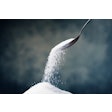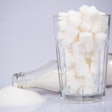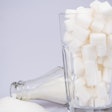Short-term juice-only diets may negatively affect oral microbiota and increase gut bacteria linked to digestive issues, inflammation, and mental decline. This study was recently published in Nutrients.
Furthermore, these changes may result from the reduced fiber and higher sugar and carbohydrate content in juice products, the authors wrote.
"These findings suggest that short-term juice consumption may negatively affect the microbiota," wrote the authors, led by Maria Luisa Savo Sardaro, PhD, of Northwestern University (Nutrients, January 27, 2025, Vol. 17:3, 458).
For this study, 14 adults were recruited from Northwestern University's Evanston and Chicago campuses between May 2018 and April 2019. They were randomly assigned to follow one of three diets for three days: a juice fast (800-900 Kcal of cold-pressed juice), juice plus a regular diet, or a plant-based whole-food diet (800-900 Kcal), they wrote.
Before starting their assigned diets, participants followed a three-day elimination diet of organic fruits, vegetables, gluten-free grains, eggs, and water while avoiding alcohol, caffeine, sugar, processed foods, dairy, red meat, and gluten. Samples of feces, saliva, and cheek cells were collected at four time points: baseline, after the elimination diet, post-intervention, and two weeks later. Researchers analyzed microbiota composition using 16S rRNA gene amplicon sequencing.
The saliva microbiome changed significantly in response to the elimination diet (unweighted UniFrac: F = 1.72, R = 0.06, p < 0.005; weighted UniFrac: F = 7.62, R = 0.23, p = 0.0025), with a significant decrease in Firmicutes (p = 0.004) and an increase in Proteobacteria (p = 0.005), they wrote.
No significant overall shifts in gut microbiota composition were observed with either the elimination diet or the juice interventions. Despite this, bacterial taxa linked to gut permeability, inflammation, and cognitive decline increased in relative abundance.
However, the study had limitations, including a small sample size and short diet intervention period, the authors noted.
"This study offers insights for redefining dietary recommendations and improving food production, prioritizing higher fiber products, reintegrating fiber into processed foods, and reducing sugar content to meet the demand for health-focused products," they concluded.




















